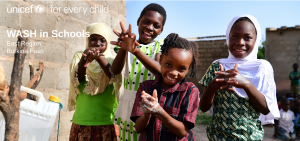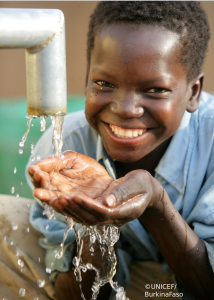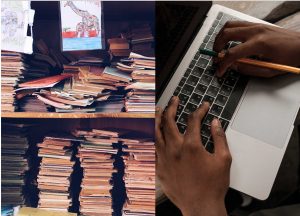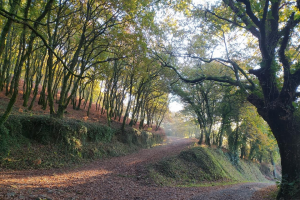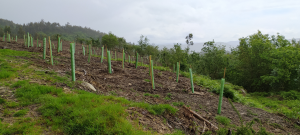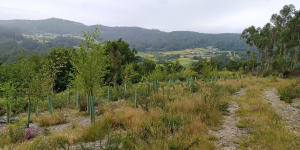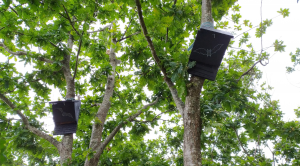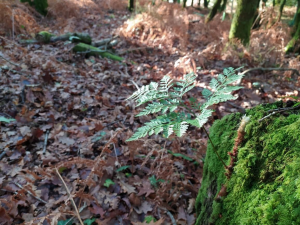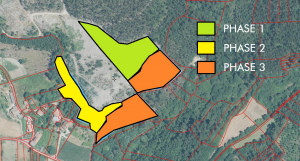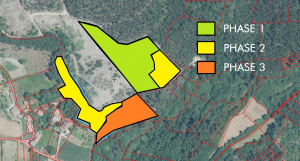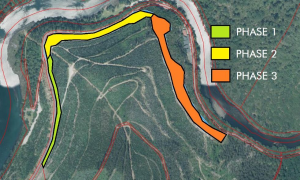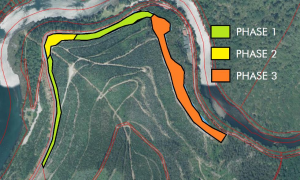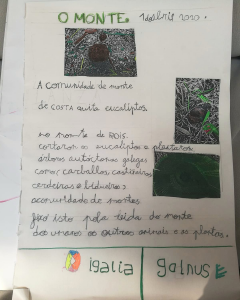2024 was another busy year for Igalia CSR. In the past 12 months, Igalia has been continuing the traditional effort on the Non-Governmental Organizations (NGOs), Reforestation, and Social Investment projects. We added a new NGO to the list and started a couple of new Social Investment projects. The CSR commission has also been looking at creating guidance on how to create and organize a cooperative based on our experience and exploring new communication channels. And we are excited about our first CSR podcast!
First CSR Podcast
In July 2024 Igalia published the first CSR podcast, thanks to Paulo Matos, Eric Meyer, and Brian Kardell!
The podcast discusses Igalia’s flat structure and why we believe that CSR is interesting for Igalia. It also covers Igalia’s approach and perspective on our social responsibilities, the projects we have, Igalia’s approach and conscience, the impact of CSR, and our vision for the future.
If interested, check out Igalia Chats: Social Responsibility At Igalia.
0.7% and NGOs
Since 2007 Igalia has been donating 0.7% of our income annually to a list of NGOs proposed by the Igalians. Working with these partners, Igalia continued the effort in a wide range of areas including development aid and humanitarian action, health, functional disabilities, ecology and animal welfare, transparency, and information, etc.
These organizations reported regularly to the commission on finance, progress, and outcomes of the dedicated projects. Most projects have been progressing nicely and steadily in 2024. Here we’d like to talk about a couple of new NGO projects we recently added.
The Degen Foundation is a small private foundation, based in A Coruña that has been working for more than ten years on neurodegenerative diseases. The Foundation was born as Foundation “Curemos el Parkinson” in 2015 when its founder and president, Alberto Amil, was diagnosed with a particularly severe and complex version of Parkinson’s Disease.
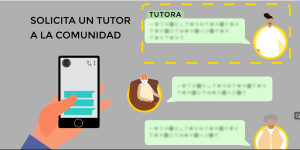
Igalia started its collaboration with the Degen Foundation in 2023, mainly engaged in the development of the first phase of the Degen Community platform, a virtual meeting and emotional support point for patients. Studies consistently show that emotional support is as crucial as clinical support for neurodegenerative disease patients. The Degen Community platform aims to provide emotional support via a pack of tools/apps. The platform also will act as an information portal to publish relevant and up-to-date information for patients and carers. The platform has been under design and volunteers have been sourced to collaborate on content etc. The organization plans to launch the platform in 2025.
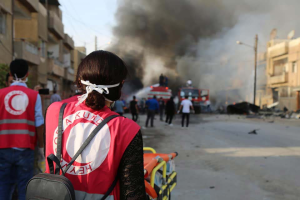
In 2024, we introduced a new NGO, Hevya, to Igalia’s NGO list. Heyva Sor a Kurdistanê is a humanitarian aid organization established to assist people in the harsh conditions of the ongoing war in Kurdistan. The organization conducts relief efforts on fundamental needs such as food, health, shelter, and education. They have been providing continuous assistance and promoting solidarity, sacrifice, and mutual support in society since 1993. The organization has become a beacon of hope for the population in Kurdistan.
Emergency Project – Floods in Valencia
Storm DANA, which hit the Valencian territory in October 2024, has had a particular impact on Horta Sud, a region that has been devastated by the catastrophe.
The CSR Commission responded quickly to this emergency incident. After collecting the votes from Igalians, the commission decided to allocate the remaining undistributed NGO donation budget to aid Horta Sud in rebuilding their community. The first donation was made via Fundació Horta Sud and the second contribution via Cerai. Both Fundació Horta Sud and Cerai are local organizations working in the affected area and they were proposed by our colleague Jordi Mallach. We also bought a nice drawing by Mariscal, a well-known Valencian artist.
Social Investments
This year we started two new social investments: Extension of the Yoff Library project and Biomans Project. Meanwhile, after preparation was completed in 2023, UNICEF’s Casitas Infantiles project started on time.
– Casitas Infantiles (Children’s Small Houses in Cuba)
In Cuba, state educational centers only care for around 19% of children between 1 – 6 years old. Casitas Infantiles was proposed by UNICEF to Igalia to help provide children with “Children’s Small Houses”, a concept of using adapted premises in workplaces, companies, and cooperatives as shelters for children’s education. This solution has been applied over the years in several provinces. It’s approved to work well and in high demand recently. After collecting feedback/thoughts from Igalians, the CSR commission reached the decision of supporting this for a period of 24 months, targeting setting up 28 small houses to accommodate 947 children.
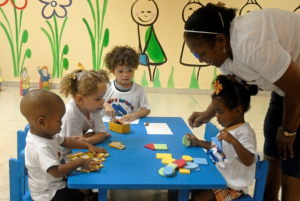
The project started in March 2024. We received reports in June and December detailing the 16 first small houses selected, resource acquisition and distribution, and training activities carried out for 186 educational agents and 856 parents or childminders to raise awareness of positive methods of education and parenting. Workshops and training also were carried out to raise awareness of the opening and continuity of children’s houses in key sectors.
– Extension of the Yoff Library Project
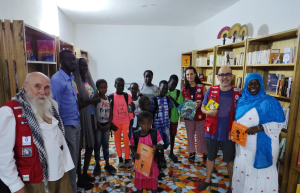
This is an extension of our Library in Yoff project.
This project progressed as planned. The construction work (Phase 5) was completed. An on-site visit in June carried out the Training action (phase 6), and Furniture and bibliography sourcing operations (phase 7). A follow-up on-site visit in November brought back some lovely videos showing how the library looks and works today and the positive feedback from the locals.
The extension project was to support completing the library with a few final bits, including kitchen extension, school furniture renovation, and computer and network equipment. It’s great to see the impact the library has on the local community.
– Biomans Project
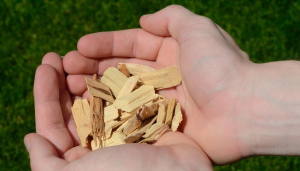
Biomans is a circular economy project that focuses its activity on the sustainable use of residual wood for its conversion into wood biomass for heating. The goal of the project is to promote green and inclusive employment in rural Galicia for people at risk of social exclusion, mainly those with intellectual disabilities.
AMICOS Association Initiated the project and has acquired a plot of land as the premise for a factory and training unit to develop the activity. Igalia’s donation would be used for the construction of the factory.
Reforestation
Igalia started the Reforestation project in 2019. Partnering with Galnus , the Reforestation project focuses on conserving and expanding native, old-growth forests to capture, and long-term storing, carbon emissions.
Check on our blog, Igalia on Reforestation, for the projects carried out in the past few years.
In 2024, Galnus proposed ROIS III to Igalia. ROIS III is an extension of the project we are running at the Rois community land. The additional area to work in this project is around 1 hectare, adjacent to the 4 hectares we have already been working on. This would mean that we are building a new native forest of over 5 hectares. Funding for this extension work was in place in November and we shall hear more about this in 2025.
The other proposal from Galnus in 2024 was A Coruña Urban Forest project.
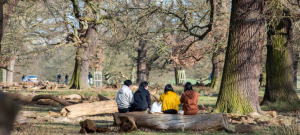
The concept of the urban forest project is to create an urban forest in the surroundings of “Parque de Bens. This project would become a model of public-private collaboration, encouraging the participation of other companies and public institutions in the development of environmental and social projects. It also incorporates a new model of green infrastructure, different from the usual parks and green areas, with high maintenance and low natural interest.
This is an exciting proposal. It’s different from our past and existing reforestation projects. After some discussions and feasibility studies, the commission decided to take a step forward and this proposal has now moved to the agreement handling stage.
Looking forward to 2025
With some exciting project proposals received from the Igalians for 2025, we are looking forward to another good year!
